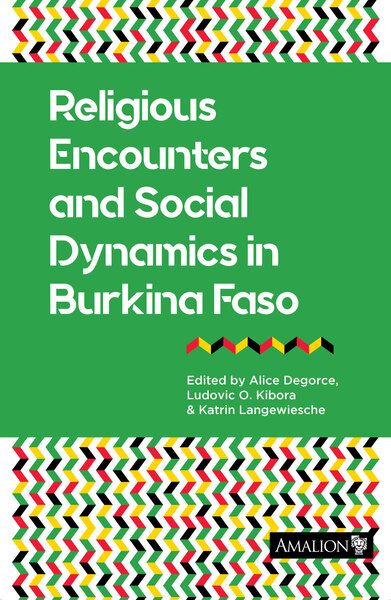Nous utilisons des cookies pour améliorer votre expérience. Pour nous conformer à la nouvelle directive sur la vie privée, nous devons demander votre consentement à l’utilisation de ces cookies. En savoir plus.
RELIGIOUS ENCOUNTERS AND SOCIAL DYNAMICS IN BURKINA FASO
Amalion - EAN : 9782359261134
Édition papier
EAN : 9782359261134
Paru le : 10 avr. 2025
35,00 €
33,18 €
Bientôt disponible
Pour connaître votre prix et commander, identifiez-vous
A paraître 10 avr. 2025
Notre engagement qualité
-
 Livraison gratuite
Livraison gratuite
en France sans minimum
de commande -
 Manquants maintenus
Manquants maintenus
en commande
automatiquement -
 Un interlocuteur
Un interlocuteur
unique pour toutes
vos commandes -
 Toutes les licences
Toutes les licences
numériques du marché
au tarif éditeur -
 Assistance téléphonique
Assistance téléphonique
personalisée sur le
numérique -
 Service client
Service client
Du Lundi au vendredi
de 9h à 18h
- EAN13 : 9782359261134
- Editeur : Amalion
- Date Parution : 10 avr. 2025
- Disponibilite : Pas encore paru
- Barème de remise : NS
- Nombre de pages : 340
- Format : 3.30 x 15.60 x 23.40 cm
- Poids : 500gr
- Résumé : Burkina Faso’s religious landscape, where traditional, Islamic and Christian religions intersect, is part of a social and historical context spread over several centuries marked by a diversity that has been studied by researchers for a long time. As the security situation deteriorates in recent years in the Sahel region, the religious question is increasingly being redefined and placed at the forefront of the Burkinabe socio-political scene. This collective work offers readers a synthesis of the knowledge accumulated by researchers over the past decades on the different religions and the social dynamics associated with them to shed light on the management of the country’s religious diversity and coexistence without masking the new tensions and conflicts being experienced. The first part of the book thoroughly explores the religious movements and currents present in the country to underline the centrality of religion in understanding social change in its polity. In the second part, the interactions between religions are analyzed across current transversal themes and questions, such as education, demography, politics, the role of faith-based NGOs, the historicity of the notion of jihad or the use of new information and communication technologies to show the connections within the construction of knowledge and political contexts. The contributions acutely show that recent socio-political dynamics in Burkina Faso are undoubtedly redefining religious boundaries and exposing the limitations of a historically and socially rooted contexts of diversity, yet the question remains on how to draw on this diversity and religious coexistence to confront new emerging tensions and conflicts.

